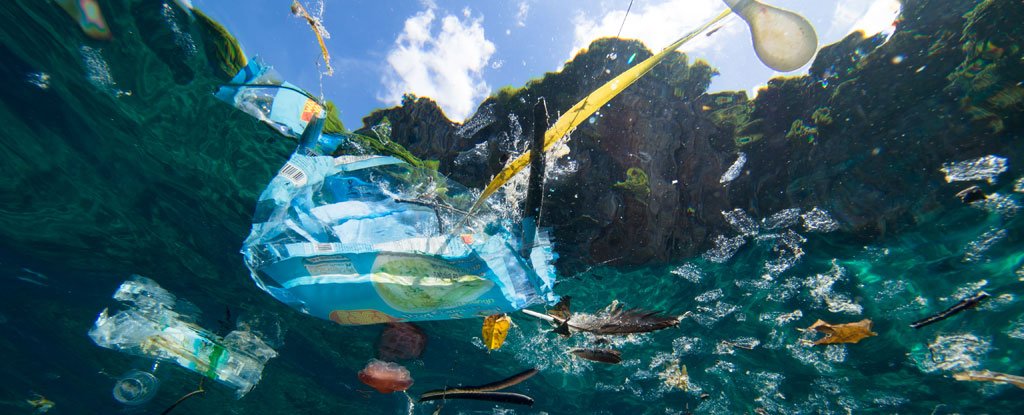Products You May Like
Even as awareness around plastic pollution grows, very little is being done to solve the problem. At this rate, by 2050, some experts predict the world’s oceans will contain more plastic than fish.
A think piece from the United Nations, commissioned by the G20, has now detailed everything the world should do to stop that from becoming our reality because we’re not doing enough.
Today, roughly 11 million tonnes of plastic end up in our oceans each year, and according to a 2020 model from SYSTEMIQ and The Pew Trusts, by 2040, the amount of plastic waste that leaks into our oceans could nearly triple.
Meanwhile, promises and policies from governments and companies will only reduce plastic litter in the marine environment by 7 percent.
That’s nowhere near what will be needed to achieve the G20’s Osaka Blue Ocean Vision, which seeks to stop any new plastic pollution from entering the oceans by 2050.
To get there, researchers at the UN argue the world needs a ”wholesale change in the plastics economy”. We need the plastics industry to go from a “linear and wasteful system” to a circular and renewable one in just a few decades.
According to the report, that’s a lofty goal, but it’s the only way to achieve the Osaka Blue Ocean Vision. If the G20 is really serious about its commitments, then leading nations need to make plastic pollution a bigger priority going forward.
The report is largely reliant upon a model published in 2020. It shows that if the world does decide to take ambitious and urgent action on plastic pollution, we can reduce the litter destined for our oceans by 82 percent come 2040 using known technology and approaches.
That will, of course, require nations from all around the world to act in unison, something we haven’t been great at so far. But if we can figure out the best route to get there, we could create a road map for all to follow.
“It’s time to stop isolated changes where you have country after country doing random things that on the face of it are good but actually don’t make any difference at all,” says Steve Fletcher from the University of Portsmouth.
“Intentions are good but don’t recognize that changing one part of the system in isolation doesn’t magically change everything else.”
Recycling alone won’t be enough. The 2020 model found at least half a million people will need to be connected to waste collection services every day for that to work as a strategy.
“Given this is unlikely, reducing the amount of plastic in the system should be a top priority for policymakers because waste management systems cannot scale quickly enough,” the report argues.
“The use of plastic can be reduced, minimized, or avoided entirely in many circumstances through intentional design changes to a product.”
Global packaging, the authors point out, is valued between $80-120 billion USD per year, yet 95 percent of that money is lost as plastic waste. Not only could changing the design save companies money, but there are also economic benefits that come from developing new products which rely less on plastic and more on renewable materials.
Ocean clean-up efforts will also be necessary to pick up at least part of what we have already tossed away, including the enormous Pacific garbage patch and other similar accumulations of plastic.
But preventing further leakage should be our number one priority, researchers say. Cleaning up plastic in the ocean comes with a lot of challenges, requires advanced technology, and costs a lot of money.
As such, ocean clean-ups should only be considered a “useful transitional effort” on our way to a circular plastics economy. Otherwise, we’ll just keep giving ourselves more and more garbage to chip away at.
In a time of global economic recovery, when COVID-19 stimulus packages emphasize green growth like never before, the world has an opportunity to address the plastics economy like never before.
If these stimulus packages can include measures to reduce marine plastic and create greener sectors from nation to nation, we might just make the Osaka Blue Ocean Vision come true after all.
The UN International Resource Panel report is available here.
